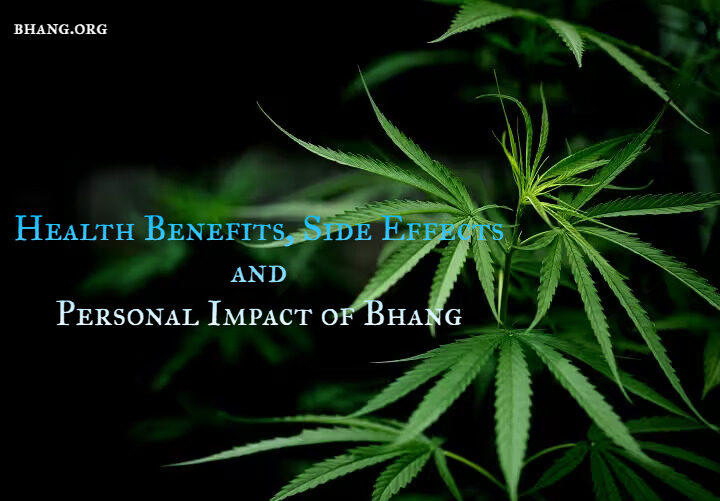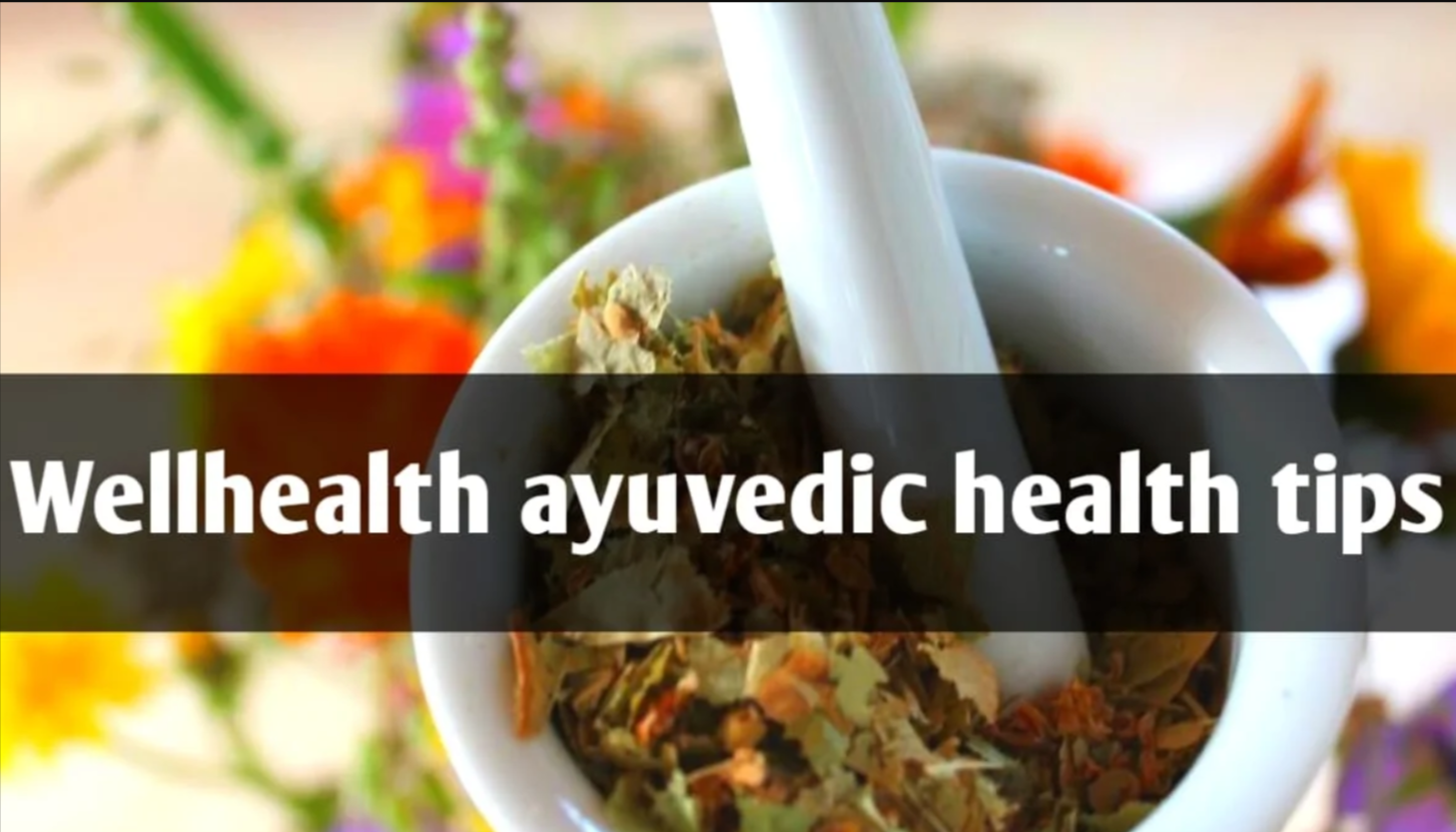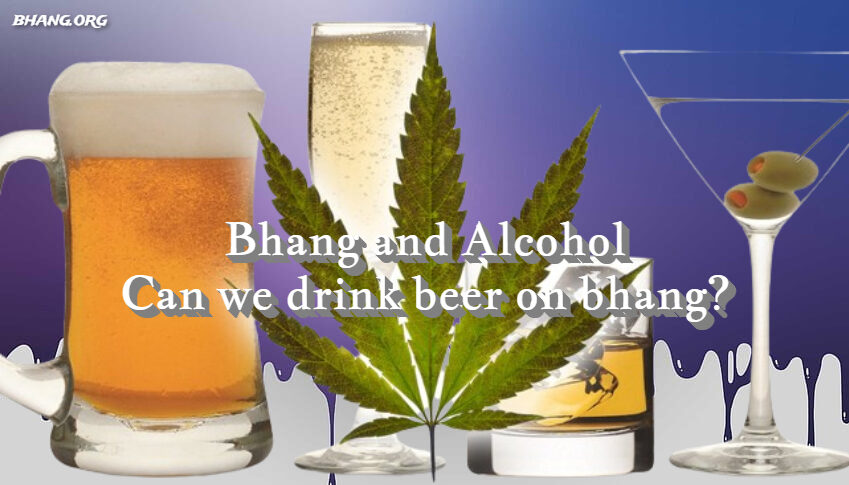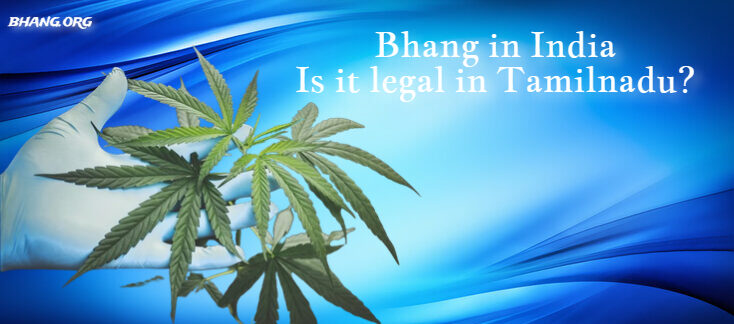
What Does Bhang do to a Person: Health Benefits, Side Effects, and Personal Impact of Bhang
Bhang addiction is prevalent in the country, yet its harmful effects are often underestimated. Derived from the psychoactive drug Cannabis, bhang has addictive properties. Cadabams, India’s leading mental health care institution, provides comprehensive and personalized treatment plans for Bhang addiction.
We understand that addiction impacts not just the individual but also their family. Our family therapy and caregiver support programs involve family members in the recovery process.
What is Bhang
Bhang is a paste made from the leaves of the Cannabis sativa plant. In India, it has been consumed for thousands of years and is commonly associated with Hindu religious practices and festivals, particularly during Holi.
While Cannabis is generally illegal in many parts of India, the sale and consumption of bhang are permitted by law. However, using parts of the plant other than the leaves can result in legal penalties, including imprisonment for up to one year.
One popular method of consuming bhang is by mixing it with curd and whey to create a beverage known as “bhang lassi.” It is also used in the preparation of various sweets.
For many people in India, Holi is incomplete without bhang. Hence, it is often referred to as the festival of “Color and Bhang” in Hindi. However, it’s important to understand the effects of bhang consumption and how it can potentially lead to addiction.
Is Bhang Addictive?
Bhang, a preparation derived from the Cannabis sativa plant, is commonly consumed in food and drinks during Holi celebrations. While many believe it to be safe, the reality is different. Bhang can induce hallucinogenic, physical, and psychological effects on both the mind and body. Overconsumption of bhang can also lead to addiction.
Bhang addiction is a serious concern, and its overdose can result in various difficulties and side effects. To address this, effective treatment for bhang side effects is necessary. But how can you determine if you are addicted to it? Look out for these symptoms.
Does Bhang make you High
The sensation experienced after consuming bhang, as depicted in the popular Hindi song “Itna maza kyun aa raha hai; Tu ne hawaa mein bhang milaaya,” is attributed to the psychoactive properties present in bhang. These properties alter the functioning of our brain and nervous system. The effects are primarily induced by cannabinoids, the primary chemical constituents of the Cannabis sativa plant. While bhang contains various cannabinoids, the two most extensively studied are:
- THC (tetrahydrocannabinol): This is the main psychoactive component of cannabis, responsible for the “high” sensation experienced by users after consuming certain foods and beverages infused with bhang.
- CBD (cannabidiol): This non-psychoactive cannabinoid is believed to contribute to the health benefits associated with bhang consumption.
Endocannabinoids, molecules naturally produced by the body, share similarities with CBD and THC. They interact with cannabinoid receptors in the body and play roles in processes such as immunity, learning, memory, decision-making, and motor control.
Benefits of Bhang for Skin
Best Oil for All Skin Types
Hemp seed oil, derived from Cannabis Sativa seeds through cold-pressing, stands out as a well-balanced seed oil with remarkable anti-inflammatory and antimicrobial properties. It effectively hydrates the skin while regulating oil production without clogging pores. With a comedogenic rating of zero, hemp oil is non-comedogenic, making it a versatile and safe ingredient suitable for all skin types, according to Dr. Chatterjee.
Acne and Pimple Prevention
Hemp seed oil’s anti-acne and anti-inflammatory properties make it a promising solution for those dealing with acne or oily skin. It helps calm acne-prone skin by reducing sebum production, which is often a trigger for breakouts. Regular use of hemp oil in skincare routines or products can provide relief to irritated skin, reduce inflammation, and contribute to overall skin health, as recommended by dermatologists.
Deep Skin Hydration
The ability of hemp seed oil to penetrate deeply into the skin makes it highly hydrating. Rich in omega-3, omega-6, and omega-9 fatty acids, it helps rebuild the skin barrier and seal in moisture. Additionally, these fatty acids aid in reducing wrinkles and fine lines, resulting in improved skin texture and appearance.
Anti-Aging Benefits
Loaded with antioxidants such as Vitamin A, C, E, and F, along with fatty acids, hemp seed oil strengthens the skin’s outer layer, enhances water retention, and promotes collagen production. This helps in firming the skin, diminishing laugh lines, wrinkles, and other signs of aging, ultimately imparting a youthful glow.
Skin Repair and Protection
Cold-pressed hemp seed oil plays a crucial role in restoring the skin’s barrier function, shielding it against environmental stressors that contribute to premature aging, such as sunlight, pollution, and extreme temperatures. By safeguarding the skin and promoting repair, hemp oil helps maintain skin health and vitality.
Relaxation and Stress Relief
In addition to its skincare benefits, hemp seed oil offers natural relief from anxiety and tension. Its soothing aroma provides immediate relaxation and healing, making it ideal for regular use and suitable for all skin types.
Symptoms of Bhang Addiction:
If you suspect yourself or a loved one is struggling with bhang addiction, be vigilant for these symptoms:
- Red or bloodshot eyes
- Persistent cough with mucus
- Dry mouth
- Rapid heartbeat
- Irritability
- Impaired memory and concentration
- Paranoia
- Anxiety
- Loss of control
- Poor decision-making skills and coordination
What Makes Bhang Addictive:
Bhang contains hundreds of chemicals present in the cannabis plant, with delta-9-tetrahydrocannabinol (THC) being the main component responsible for inducing a “high.” When THC enters the bloodstream, it binds to cannabinoid receptors in the brain, triggering the release of dopamine, the feel-good chemical. This sensation of pleasure and reward reinforces the desire to consume bhang repeatedly, leading to addiction.
While other activities may also trigger dopamine release, the association between bhang consumption and pleasure can be particularly strong. Over time, individuals may find it difficult to derive pleasure from other recreational activities, contributing to the cycle of addiction.
Effects of Bhang on the Body
Bhang can have various effects on the body, including but not limited to:
- Impaired motor skills and coordination
- Decreased memory and cognitive function
- Increased heart rate
- Dry mouth
- Anxiety and paranoia
- Feeling of nausea
- An increase in appetite
- Higher heart rate
What does bhang do to a person?
Effects of Bhang:
- Reddened Eyes:
After consuming bhang, the heart rate and blood pressure increase due to cannabinoids present in the plant. This rise in blood pressure causes blood vessels, including those in the eyes, to dilate, resulting in increased blood flow and redness in the eyes.
- Persistent Cough:
Prolonged use of bhang can lead to coughing and increased phlegm production, similar to the effects of tobacco smoke. Chronic ingestion may also contribute to lung problems over time.
- Dry Mouth:
Bhang’s neurological effects decrease saliva production, leading to dry mouth or xerostomia. Extended exposure to dry mouth may cause oral discomfort, oral sores, and bad breath.
- Irritability:
Withdrawal from bhang can sometimes result in temporary restlessness, akin to the feeling experienced when discontinuing caffeine consumption.
- Cognitive Decline (Poor Memory and Concentration):
Bhang use may impair memory, slow cognitive processing, and hinder concentration, with effects lasting for several weeks. Excessive consumption may also lead to insomnia, anxiety, paranoia, impulsive behavior, and loss of motor coordination.
- Tachycardia and Hypotension:
Individuals with cardiovascular conditions face increased health risks from bhang consumption, as it can elevate heart rate, catecholamine levels, and postural hypotension. Bhang affects regions of the brain associated with mood, memory, thought, concentration, and movement coordination, leading to altered perceptions, diminished appetite, and challenges in problem-solving and learning.
Treatment for Bhang Addiction:
The treatment for bhang addiction typically involves a combination of medical intervention and psychotherapy tailored to the individual’s needs. Here’s the process of treatment.
- Medication:
Medication, such as anti-anxiety drugs, may be prescribed to ease withdrawal symptoms and support the individual in reducing consumption. While medication can aid in recovery, it’s essential to integrate it with other forms of therapy for comprehensive treatment.
- Psychotherapy:
Various forms of psychotherapy are utilized to address the psychological aspects of addiction:
- Cognitive Behavioral Therapy (CBT):
CBT helps individuals manage their thought patterns and behaviors related to drug abuse. By identifying and challenging negative thoughts, individuals can develop healthier coping mechanisms.
- Motivational Enhancement Therapy (MET):
MET is designed to enhance motivation and commitment to abstain from drug use. Therapists work with individuals to explore their reasons for change and strengthen their resolve to resist drugs.
- Family Therapy:
Family therapy includes the involvement of family members throughout the recovery journey.
It aims to improve communication, resolve conflicts, and strengthen familial support networks, which are crucial for long-term recovery.
- Group Therapy:
Group therapy provides a supportive environment for individuals to share experiences, emotions, and coping strategies with peers facing similar challenges. Group sessions foster empathy, accountability, and mutual encouragement.
- Individual Therapy:
Individual therapy focuses on the individual’s specific needs and challenges in maintaining abstinence. Through regular one-on-one counseling sessions, individuals receive personalized support and guidance.
- Relapse Prevention:
A vital aspect of addiction treatment is equipping individuals with tools and techniques to prevent relapse:
Relapse prevention strategies help individuals identify triggers, develop coping skills, and create a plan to manage cravings and high-risk situations.
Ongoing support and follow-up care are essential to monitor progress, address setbacks, and reinforce positive behavior changes.
Conclusion:
Bhang addiction is a serious concern with significant implications for individuals and their families. However, with comprehensive and personalized treatment plans offered by reputable mental health care institutions like Cadabams, recovery is possible. By addressing the physical, psychological, and social aspects of addiction, individuals can overcome bhang addiction and regain control of their lives. If you or someone you know is struggling with bhang addiction, don’t hesitate to seek help and embark on the journey to recovery.
FAQs About Bhang Addiction Treatment
What is Bhang Addiction?
Bhang addiction refers to the compulsive and harmful pattern of using bhang, a preparation made from the Cannabis sativa plant. It involves a loss of control over consumption, despite adverse consequences on various aspects of life.
How Do I Know if I or Someone I Know is Addicted to Bhang?
Look out for symptoms such as red or bloodshot eyes, persistent cough with mucus, dry mouth, rapid heartbeat, irritability, impaired memory and concentration, paranoia, anxiety, loss of control, and poor decision-making skills and coordination.
What Are the Treatment Options for Bhang Addiction?
Treatment for bhang addiction typically involves a combination of medication and psychotherapy. Medications may be prescribed to ease withdrawal symptoms, while psychotherapy, including cognitive-behavioral therapy (CBT), motivational enhancement therapy (MET), family therapy, group therapy, and individual therapy, helps address the psychological aspects of addiction.
How Effective is Bhang Addiction Treatment?
The effectiveness of bhang addiction treatment varies depending on individual factors such as the severity of addiction, the presence of co-occurring disorders, and the individual’s commitment to recovery. Comprehensive treatment plans tailored to the individual’s needs and ongoing support can significantly improve outcomes.
Is Bhang Addiction Treatment Covered by Insurance?
In many cases, addiction treatment for bhang addiction may be covered by health insurance plans. However, coverage may vary depending on the insurance provider and the specific treatment services required.It’s crucial to verify with your insurance provider to comprehend your coverage choices.


